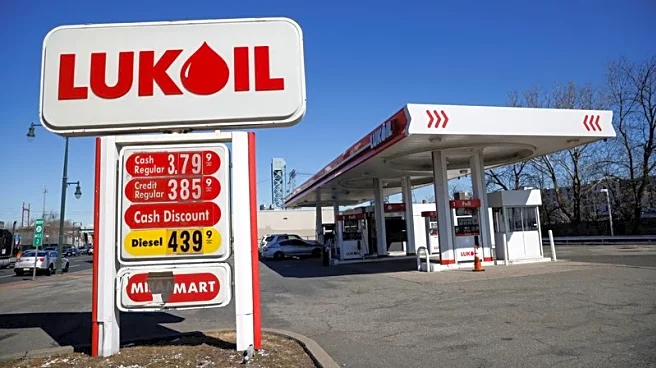Rapid Read • 8 min read
Yara, a leading global fertilizer company, is positioning itself as a key player in the push for low-carbon agriculture ahead of the COP30 climate summit in Belém, Brazil. CEO Svein Tore Holsether has been vocal about the need for decarbonization in farming, highlighting the geopolitical risks that threaten global food supply chains. Holsether has previously criticized Russian President Vladimir Putin for using food as a weapon in global conflicts. Yara is actively working on initiatives to reduce carbon emissions in agriculture, including a partnership with Cooxupé, the world's largest coffee cooperative, to use low-carbon fertilizers. These fertilizers reportedly reduce emissions by up to 90% compared to conventional products. Additionally, Yara has started producing ammonia from biomethane, a renewable gas, as part of its efforts to transition away from fossil fuels.
AD
The push for low-carbon agriculture is crucial as the agricultural sector is a significant contributor to global greenhouse gas emissions. Yara's initiatives could set a precedent for other companies in the industry, potentially leading to widespread adoption of sustainable practices. This shift is not only environmentally beneficial but could also provide economic advantages to farmers who adopt these practices. However, the financial viability of these initiatives remains a concern, as farmers need to see clear economic benefits to make the transition sustainable. Yara's efforts also highlight the broader geopolitical implications of climate change, as conflicts can exacerbate food security issues. The company's focus on decarbonization aligns with global efforts to combat climate change, making it a significant player in the industry.
Yara's participation in COP30 will likely focus on advocating for policies that support low-carbon agriculture and incentivize farmers to adopt sustainable practices. The company may also seek to expand its partnerships and initiatives to further reduce its carbon footprint. The outcome of COP30 could influence future regulatory frameworks and market dynamics in the agricultural sector. Stakeholders, including governments and industry leaders, will be closely watching the summit for commitments and actions that could drive the transition to sustainable agriculture.
Yara's efforts underscore the ethical and economic challenges of transitioning to low-carbon agriculture. While the company is making strides in reducing its reliance on fossil fuels, critics point out that it still heavily depends on natural gas. This highlights the complexity of balancing environmental goals with economic realities. The success of Yara's initiatives could influence other sectors to adopt similar practices, potentially leading to broader systemic changes in how industries approach sustainability.
AD
More Stories You Might Enjoy












